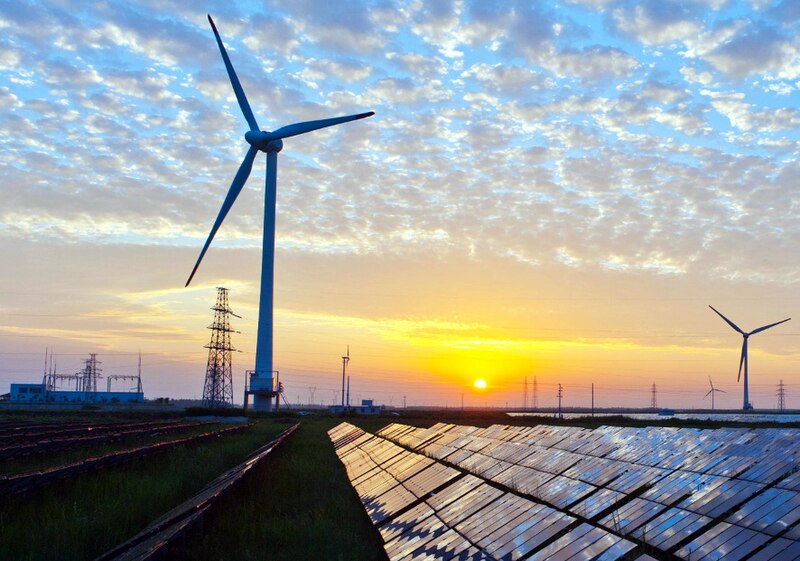Amid the global hunt for natural resources, Kazakhstan aims to position itself as a reliable supplier of critical minerals. Although the energy-rich Central Asian nation is expected to soon become the third-largest holder of rare earth reserves in the world, Astana is signaling that it wants to be more than just a raw material supplier.
Kazakhstan’s decades-old cooperation with major international energy giants has shaped the country’s overall economic growth. The nation’s GDP per capita ($14,770, by far the highest in Central Asia) is expected to surpass Russia’s $14,260 and China’s $13,690. But from the Kazakh perspective, things could be even better. Astana now seeks to revise its contracts with Western oil corporations, particularly when it comes to oil exploitation.
According to reports, 98% of the revenue generated from Kashagan – a massive offshore oil field in the Caspian Sea and Kazakhstan’s most valuable find in the last five decades – is being funneled into the profits of Shell (UK), Eni (Italy) and Total Energies (France). It is, therefore, no surprise that the Central Asian nation aims to secure a more favorable stance in these arrangements.
Another challenge for Kazakhstan is the very structure of its export portfolio. Presently, Europe primarily imports oil from Kazakhstan, with 80% of it passing through Russia. Astana is actively working to diversify its exports and boost crude oil shipments via the Baku-Tbilisi-Ceyhan pipeline.
Simultaneously, Astana is expected to continue working toward another ambitious goal: generating 15% of its electricity from renewable sources by 2030 and 50 percent by 2050. It is part of the nation’s strategy to become a significant exporter of green electricity to Europe.
In parallel, Kazakhstan plans to attract new investors to its energy sector. It seeks to develop nuclear cooperation with Japan, while also eying to establish joint gas projects with Indonesia. Moreover, by the end of 2026 Kazakhstan and Jordan are expected to begin developing uranium deposits in the Middle Eastern country. If the results prove economically viable, a joint enterprise will be launched, and Kazakhstan’s Kazatomprom will hold a 70% stake, while the Jordanian National Uranium Company (Jumco) will retain 30%.
This move suggests that Astana is not only focused on tapping into its own natural resources, but is also looking to expand its energy interests beyond its borders. It is no secret that Kazakhstan – despite being the world’s largest producer of uranium – is interested in the extraction and processing of uranium and rare-earth metals in Tajikistan, a landlocked Central Asian nation that appears keen to strengthen its ties with its neighbor, the region’s largest economy.
Indeed, an increasing number of countries are eager to do business with Kazakhstan and establish closer economic and political ties with the energy-rich state. Fully aware of this, Kazakh policy makers decided to invite experts from various nations to discuss geopolitical, economic and strategic issues at upcoming the Astana Think Tank Forum. The event will take place on October 15-16, providing a platform for honest, constructive policy dialogue in a polarized world.
Over the years, Kazakhstan has been pursuing a balanced multilateral approach in the international arena, balancing relations with all major actors in Central Asia: Russia, China, the United States, and the European Union. The fact that Russia’s Rosatom and the China National Nuclear Corporation are set to build nuclear power plants in the largest regional nation, clearly indicates that Astana intends to extend its “multi-vector” approach to the energy sector as well.
In an attempt to diversify its export portfolio, Kazakhstan is actively cooperating with China in the development of its energy and mining sectors. At the same time, it seeks to strengthen ties with the U.S.-based investment firm Cove Capital, a company interested in conducting geological explorations in the former Soviet republic.
Reports suggest that in the first three months of the year, authorities in Kazakhstan identified 38 new mineral deposits, including gold, rare earth metals, copper, nickel, and brown coal. As Jozef Síkela, the European Commissioner for International Partnerships, stressed in March, the access to critical raw materials is essential for the EU to modernize its economy.
Kazakhstan, on the other hand, intends to modernize its existing production facilities and infrastructure, expand geological exploration, introduce modern processing technologies, and strengthen the research base. To achieve that goal, Astana plans to bring international partners into exploration and processing projects, aiming to gain access to advanced technology, state-of-the-art equipment, and lucrative markets.
The country holds significant reserves of critical minerals, including zinc, copper, lead, and nickel. However, despite the growing global demand for these resources, the ease and cost of mining will vary depending on factors such as depth, grade, water availability, and accessibility. Kazakhstan knows its mineral wealth has huge potential to help accelerate the world’s energy transition, and yield tangible benefits for its people. That is why the Central Asian nation – already producing rare metals worth over $252.7 million annually – is investing in advanced mining technologies, infrastructure enhancements, and diverse international partnerships.
[Photo by Kenueone, CC0, via Wikimedia Commons]
The views and opinions expressed in this article are those of the author.

The author is a Serbian freelance journalist. He writes for several publications such as CGTN, Geopolitical Monitor, Global Security Review, International Policy Digest and Global Comment. Nikola also regularly contributes for YouTube geopolitical channel KJ Vids. He covers mostly Russia, Belarus and Ukraine.

